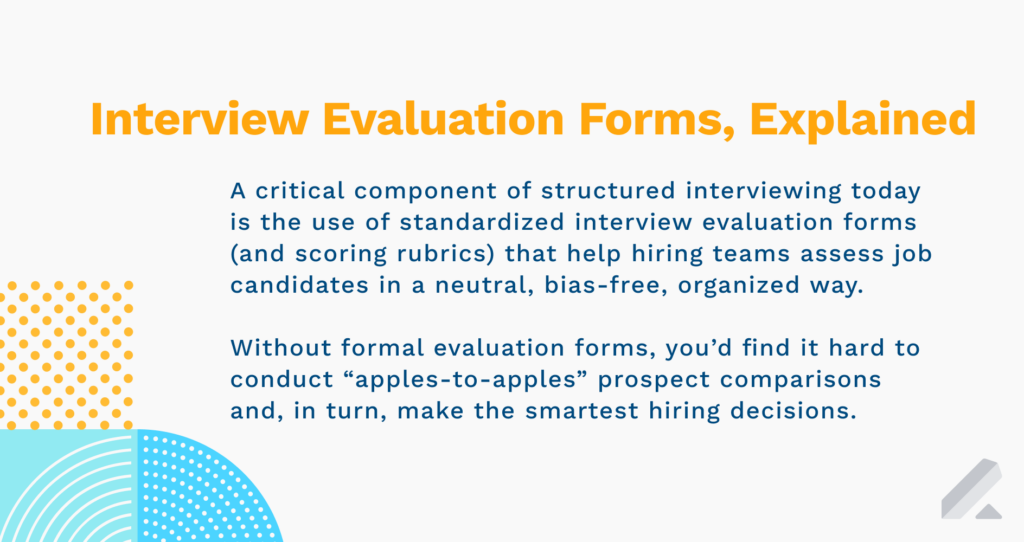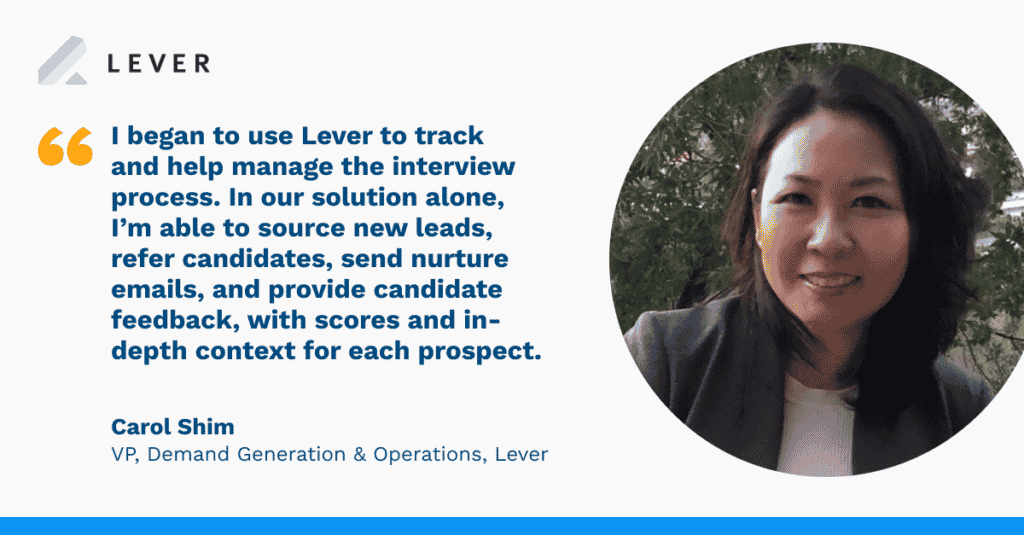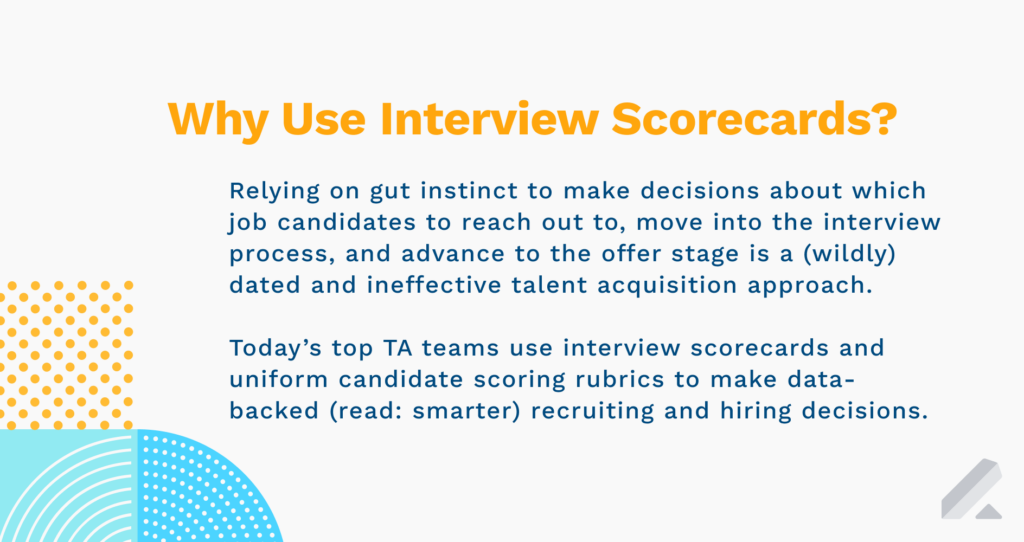An interview evaluation form (a.k.a. candidate evaluation form) helps all interviewers provide detailed and structured feedback following conversations with job seekers.
This standardized, structured form of interview feedback ensures each prospect with whom your hiring team engages for a given role are evaluated on the same exact criteria so you can make apples-to-apples comparisons.
This, in turn, helps talent acquisition specialists, interview panelists, and hiring managers make well-informed decisions about which candidates to move forward in the recruitment process and extend job offers to, and — ultimately — hire.
The trick is getting all hiring team members on the same page to ensure they systematically use formal interview evaluation forms to suitably assess prospects — and improve the odds of hiring only strong-fit individuals for open roles.

How to make the most of interview evaluation forms — and enhance your recruitment model
It’s not simply enough, though to say “We’ll start using interview evaluation forms.”
Rather, you and all other hiring stakeholders at your org must sit down to discuss what exact criteria you want to uniformly use to assess and rate candidates of interest as well as how to properly provide feedback in general.
“By taking the time to learn more about how to write effective interview feedback, you can offer valuable insights to your coworkers about a candidate’s interpersonal and technical skills,” according to Indeed.
Looking for advice on utilizing your “prospect appraisal” efforts?
Here’s the best way to develop your candidate evaluation forms and train each member of your hiring team to complete it following each chat with qualified candidates.
Host a kickoff call with every high-level hiring stakeholder at your org
You and other recruiters on your talent team conduct kickoff calls with hiring managers when they have a new requisition approved. Similarly, you must also host “prep” meetings with all hiring stakeholders when implementing a new interview evaluation form.
(Not to mention when you overhaul or optimize your recruiting approach at large).
For each job posting, conduct a joint meeting to determine the criteria for evaluating candidates and define the distinct interview process that will suss out the required qualifications.
For example, an engineering role will require hard skills that can be assessed through a technical interview, while a management candidate should undergo an interview to assess leadership abilities and history with delegating important tasks.
Put another way? Each role may need a unique interview process to find the right candidate, and your interview evaluation forms should accommodate that.

Create your interview evaluation forms based on agreed-upon criteria
Once you’ve agreed on how to assess candidates, you can create custom interview feedback forms (usually from within your ATS solution of choice) for each type of interview (i.e., for specific positions and/or business units).
Include the goal of the interview (i.e. to assess technical ability or culture fit), any necessary instructions, specific questions the interviewer should ask, and which qualifications the interviewer should be looking for.
This ensures all leads have the same experience and are evaluated on the same criteria. This can help you fairly compare one candidate to another in your post-interview period.
Also, ask for a rating on each interview evaluation form so the interviewer can recommend either hiring or passing on the candidate. A four-point rating system (i.e., from “Strong No Hire” to “Strong Hire”) is a good way to rate leads and ensure interviewers remain neutral.
(You need their help to make candidate “advancement” and hiring decisions, after all.)
Then, send your interview evaluation forms to your interviewers ahead of time so they can read them over, ask any questions they may have, and prepare for their interviews.
Collect each interview panelist’s candidate feedback from quickly
It’s important to get interview feedback forms back quickly so you can make a decision on next steps before your top-choice candidate gets scooped up by a competitor.
Even if you’ve set the expectation that you need to secure quick feedback from your interviewers, they may still get busy doing other things. They have a lot on their plates day in and day out, just as you and your TA team do.)
With that in mind, remember that interviewing isn’t their full-time job.
To help you get feedback as quickly as possible following an interview with a candidates, consider blocking off time on your interviewer’s calendars.
Feedback blocks can be scheduled either immediately after an interview or preceding a team feedback discussion. Just ensure your interviewers provide individual feedback before discussing a given candidate with other interviewers.
The primary goal with this approach is to avoid any form of groupthink.
If you have LeverTRM, our complete ATS + CRM solution for talent teams, you can send interviewers automated reminders to complete their respective interview evaluation forms (and continue “nudging” them until they do).

Why interview evaluation forms are so important to your talent acquisition process
Collecting feedback from interviewers is a crucial component of your recruitment process.
Interview evaluation forms help you collect detailed and structured feedback that your hiring manager can use to determine which candidate to hire.
Getting the most out of these forms requires your hiring team to have thoughtful, unbiased, objective discussions to ensure you appropriately consider candidates for a given position and leave out “gut feeling” from your decision-making.
In other words? Leveraging interview evaluation forms is a key facet of your data-driven recruitment model. One that can help you more consistently hire high-performing employees who stick around your business for years to come.
Learn how a structured interview process leads to smarter decision-making regarding which candidates to engage and extend offers to. Download our guide today.



